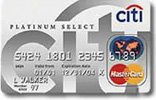Credit Card Debt Reduction - 3 Tips To Lowering Credit Card Debt
by: Carrie Reeder
Credit card debt can be reduced through lower rates or negotiating for reduced balances. With reduced interest, you can pay off the principal quicker with the same monthly payment. The other approach is debt settlement, which eliminates part of your debt at the cost of your credit score.
1. Transfer Balances
Credit card companies are always offering introductory deals, such as 0% on transfers. Usually such offers last for several months, giving you the chance to make sizeable payments on your principal.
If you have several credit cards, choose to transfer the account with the smallest amount. Pay off that account, then take that card’s monthly payment and apply it to your next lowest balance. Soon you will be creating a snowball affect, swiftly lowering your debt. Make sure to close paid off accounts to raise your credit score and keep from adding to your debt.
2. Negotiate Lower Rates
Credit card companies are also willing to lower rates. You can try to do this on your own, but you will have more success with a debt management company. For a monthly fee, they will lower rates with credit card companies and handle your monthly payments.
Debt management plans can affect your credit temporarily if your creditors report delayed or reduced payments. This might prevent you from opening new accounts for a year or more. However, with such plans you can be out of short term debt in less than five years with a much better credit score.
3. Settle For Reduction In Debt
Debt negotiation is the most drastic step to lower your credit card debt since it has long term affects on your credit. A debt negotiation company can settle some of your debt with creditors. Lenders will then report the reduced amount to the credit reporting agencies, which will keep it on your record for seven years. Debt negotiation is similar to bankruptcy and can prevent you from qualifying for conventional credit for a couple of years.
Reducing your credit card debt will have long term benefits for you. Less credit means better rates when you do want to apply for financing, especially with a home or car purchase. No matter which option you choose, research companies carefully and compare their services and fees.
Next!




